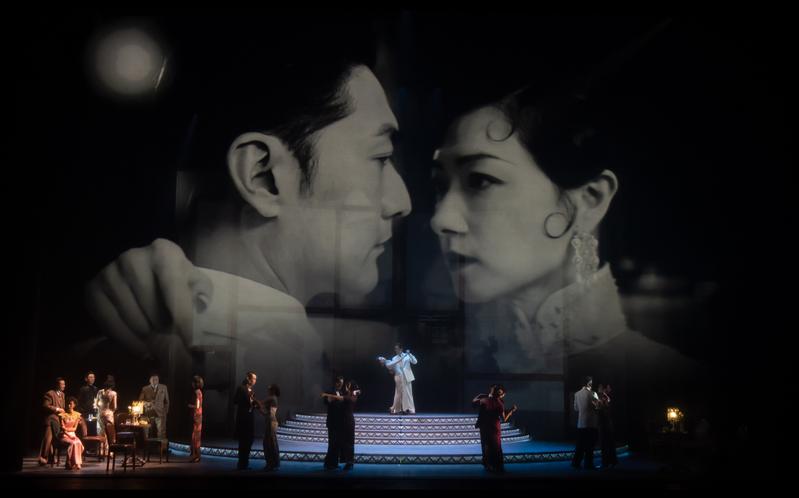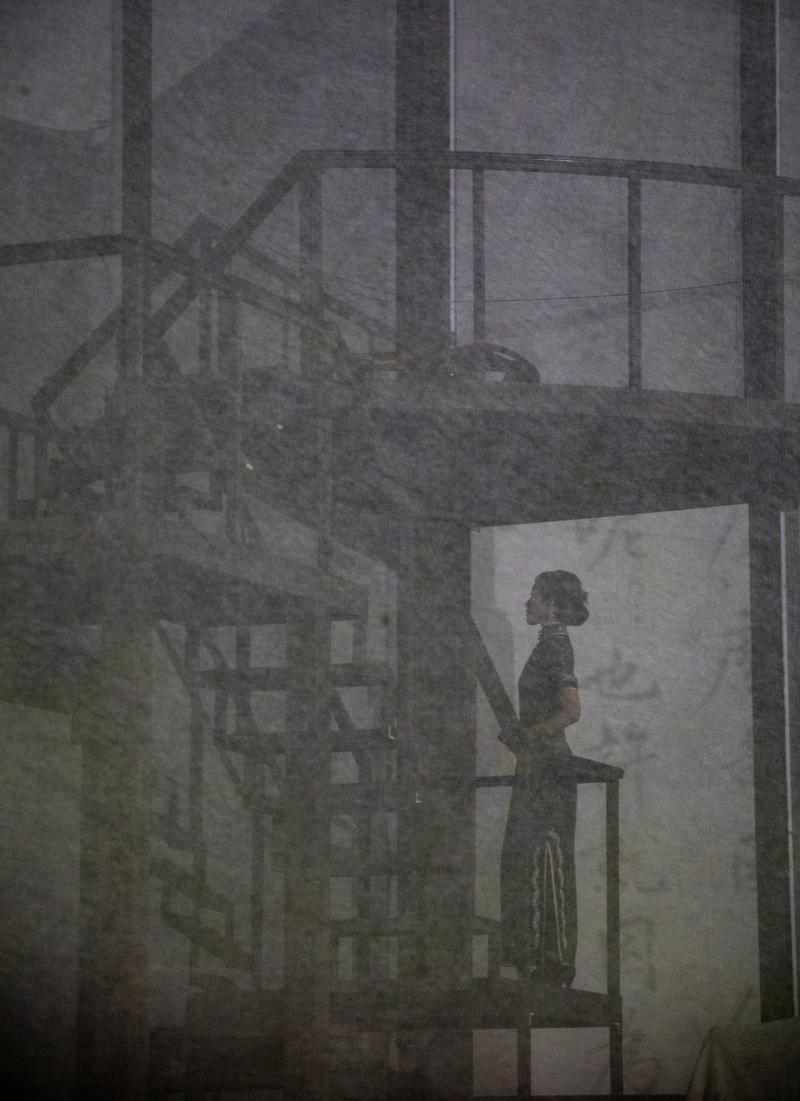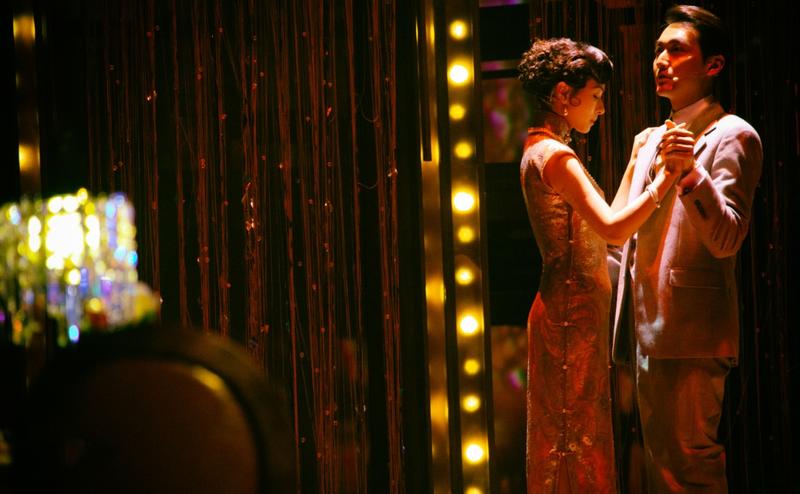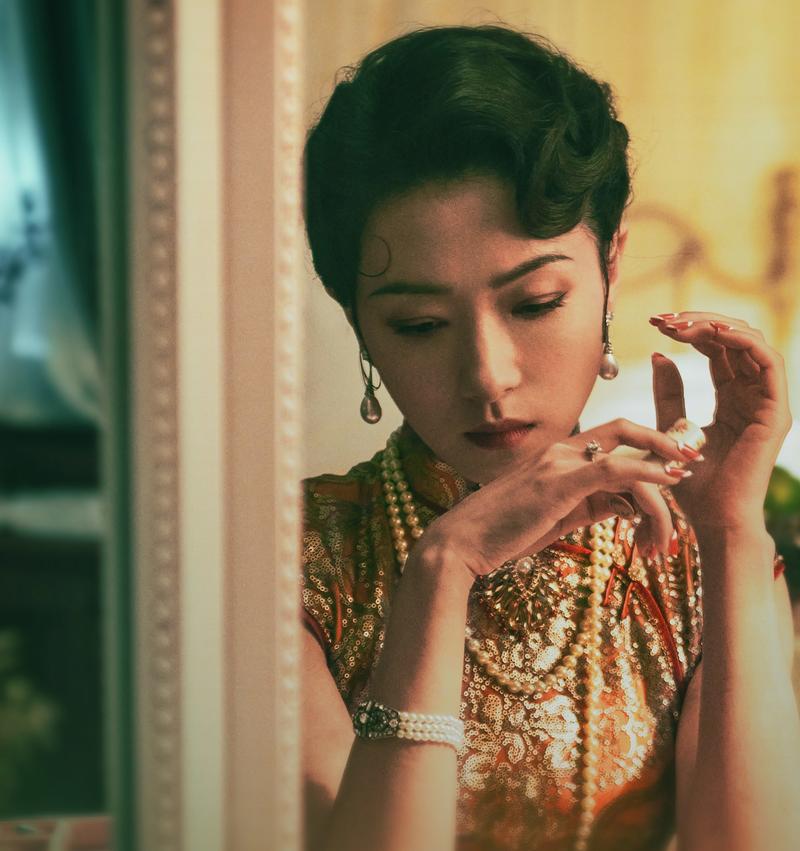New play adapted from 1940s classic novella premieres in Shanghai, Cheng Yuezhu reports.
 A combination of film and stage is a distinct feature of the latest adaptation of Love in a Fallen City. (PHOTO PROVIDED TO CHINA DAILY)
A combination of film and stage is a distinct feature of the latest adaptation of Love in a Fallen City. (PHOTO PROVIDED TO CHINA DAILY)
Ever since Eileen Chang published her novella Love in a Fallen City in the 1940s, many, including the author, have attempted to adapt the story for stage or screen.
A new play based on the story premiered in Shanghai on Oct 27, directed by Tim Yip, who won the Academy Award for best art direction in 2001 for Ang Lee's film Crouching Tiger, Hidden Dragon.
The novella tells a love story set at the dawn of the War of Resistance Against Japanese Aggression (1931-45) between 28-year-old Bai Liusu, who is treated with contempt by her family members because of her divorce, and the affluent socialite Fan Liuyuan.
Although the plot can come across as straightforward, Yip says the relationship between the protagonists does not follow a simple storyline, and tiny details about the two characters sparked his imagination. Therefore, he adopted an improvisational approach for the play.
When he read about a detail written in the story, he would think about how to present it onstage, even the scenes not elaborated upon in the novella, he adds.
 A combination of film and stage is a distinct feature of the latest adaptation of Love in a Fallen City. (PHOTO PROVIDED TO CHINA DAILY)
A combination of film and stage is a distinct feature of the latest adaptation of Love in a Fallen City. (PHOTO PROVIDED TO CHINA DAILY)
For example, to present how the two first met and became attracted to each other, Yip shot a seven-minute dance scene choreographed by Carolyn Choa, a well-known dancer. The scene is displayed on a screen in front of the stage when the play is performed.
"We deliberated on a lot of the details in the story, to present a comprehensive world that the characters live in, and then integrate the details with dialogue. The story is a multilayered and complex one," Yip says.
The performers need to delve deep into the story and present the intricacies of the characters' personalities, so the audience can interpret the story beyond a simple love tale, he adds.
When Chang herself adapted the story into a play in the 1940s, she wrote that she hoped the audience would not take it as a bygone legend. "It's about people and the stories near them."
Through his adaptation, Yip expresses a similar concept-the story can resonate with today's audience, including its reflections on the dynamics between material prosperity and spiritual vacuity, and tradition and modernity.
 Wan Qian (left) and Song Yang play the lead roles in the new production. (PHOTO PROVIDED TO CHINA DAILY)
Wan Qian (left) and Song Yang play the lead roles in the new production. (PHOTO PROVIDED TO CHINA DAILY)
Playwright Zhang Chang, who wrote the script for the new production, says: "When I first worked on it, I wrote a lot of scenes without any lines, in which the characters are by themselves, putting on makeup and perfume, for example. These scenes are challenging for both the director and the actors.
"I also wanted to leave some space to present the ambience of Eileen Chang's writing, which requires our actors to fully embody the characters."
The combination of film and stage is a distinct feature of the play, with a lot of prerecorded video screened, sometimes in sync with the performances.
The roles of Bai and Fan are respectively played by actress Wan Qian and actor Song Yang.
"Before I started rehearsing, I was not sure how Yip's idea of integrating video with stage would work, and I was a bit worried about the two elements not fitting together," Wan says. "But when we started working, I found that our performance was in harmony with the video, and the ambience and emotions were amplified."
 Wan in tailor-made qipao displays the fashion trends in Shanghai of the last century. (PHOTO PROVIDED TO CHINA DAILY)
Wan in tailor-made qipao displays the fashion trends in Shanghai of the last century. (PHOTO PROVIDED TO CHINA DAILY)
Yip has put in an effort on costume and stage design, including tailor-made qipao and suits for cast members that show their character's personality and the general milieu.
"When doing research, I felt that Eileen Chang had an urge to preserve traditional Chinese aesthetics and values, but she was also very fond of the new and the Western," Yip says.
With props and costumes, he has tried to faithfully re-create the fashion trends in Shanghai of the last century.
Zhangmi Keting, a blogger and a fan of Chang's work, writes on Sina Weibo, "They are virtually putting the effort and cost of making a film into staging this play."
The play will tour Hangzhou in Zhejiang province, Changsha in Hunan province and Beijing in the coming three months.
Contact the writer at chengyuezhu@chinadaily.com.cn


